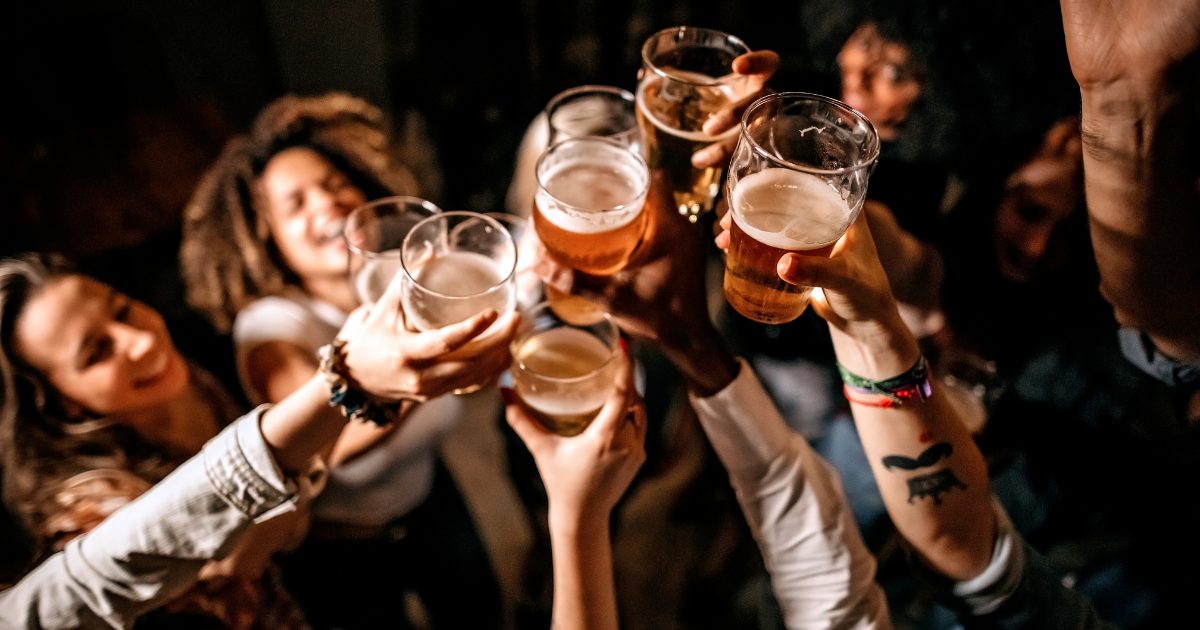Dram Shop Laws Hold Bars Responsible for Serving Visibly Intoxicated Persons
Over-serving individuals occurs daily at many bars. That practice becomes a problem when an establishment serves a visibly intoxicated person who eventually gets behind the wheel of a motor vehicle and causes a drunk driving accident causing injuries or even death. Pennsylvania law can hold the business and its employees responsible for injuries and damages occurring in the mishap if they served alcohol to a visibly intoxicated individual.
If you have been injured in a motor vehicle accident involving a drunk driver who was over served at a bar, pub, or restaurant, that establishment may also be liable for your injuries. Hagelgans & Veronis, LLP, has represented victims of motor vehicle accidents throughout Pennsylvania for over 25 years. Contact our legal experts at (717) 295-7009 for a free consultation to explore whether you have a valid legal claim.
What are Dram Shop Laws?
Dram shop laws get their name from bars and pubs that sold liquor in England during the 18th century. These laws hold a person or business liable for providing a visibly intoxicated person with alcohol if that individual goes on to injure or cause harm to someone. Pennsylvania is one of 43 states, along with the District of Columbia, that have passed dram shop laws because of the tremendous number of DUI accidents resulting in wrongful deaths or serious injuries. Under these laws, anyone injured as a direct result of an intoxicated patron being overserved at an establishment is entitled to compensation from the establishment that provided the alcohol.
Many bars and similar establishments selling alcohol carry liability insurance to cover the compensation for such incidents. However, some businesses don't have liquor liability. These establishments may still be held accountable by injured plaintiffs.
What Does "Visibly Intoxicated" Mean?
Visible intoxication means a person shows signs of being drunk when the bar serves them alcohol. Although servers are not expected to know someone's blood alcohol level (BAC), they should be able to recognize the signs of intoxication. These include:
- Bloodshot, glassy, or watery eyes
- Thick, slurred speech
- Staggering, stumbling or swaying
- Strong odor of alcohol
- Flushed face
- Damp or clammy skin
- Drowsiness
- Loud and sometimes obnoxious behavior
Direct evidence involves other bar patrons testifying that an individual showed signs of being drunk around the time of being served. Circumstantial evidence includes an elevated blood alcohol test, often with a toxicologist examining the results and determining what the person's BAC would have been at the time of being in the bar. Prosecutors can use Both types of evidence to prove a case.
First-Party and Third-Party Dram Shop Cases
Generally, Pennsylvania allows two types of dram shop cases, first-party and third-party. A first-party dram shop occurs when the injured plaintiff is the person who was served the alcohol. These cases are ill-received by the courts because of the general belief that individuals drinking in an establishment should be responsible for their intoxication level.
Even if the case is accepted, a plaintiff may have difficulty convincing a jury that the bar, not the patron, should be responsible for their injuries. The only exception is if a first-party case is brought on behalf of a minor illegally drinking in the bar.
Third-party dram shop cases occur when the drunk person causes injuries to others. Thus, if you were hit and injured in a motor vehicle accident by a drunk driver who recently left a bar, you would have a potential third-party dram shop case.
Contributory Negligence and Other Factors
Contributory negligence refers to a division of fault in an injury claim. It can make dram shop cases difficult to prove because an establishment is rarely the only one at fault when an intoxicated person is overserved. Courts often find it difficult to place the sole blame on the establishment when someone continues to drink.
Proving liability on the establishment's part is also tricky because the law cannot assume that the individual serving alcohol can adequately determine another person's intoxication levels, as everyone handles alcohol absorption differently. Restaurants and bars will frequently use defenses that include requiring their servers to go through an alcohol education course, promoting nonalcoholic beverages as alternatives, encouraging patrons not to become intoxicated and promoting the use of taxis or rideshare vehicles if they do become intoxicated.
Hiring an Attorney to Pursue Your Drunk Driving Injury Case
Despite the difficulties that dram shop cases can involve, pursuing a claim against the establishment that served the driver causing a drunk driving accident may be in your best interests. If you sustained significant injuries, it's essential that you secure legal representation to maximize your chances for compensation. Contact Hagelgans & Veronis at (717) 295-7009 for a free case evaluation.








